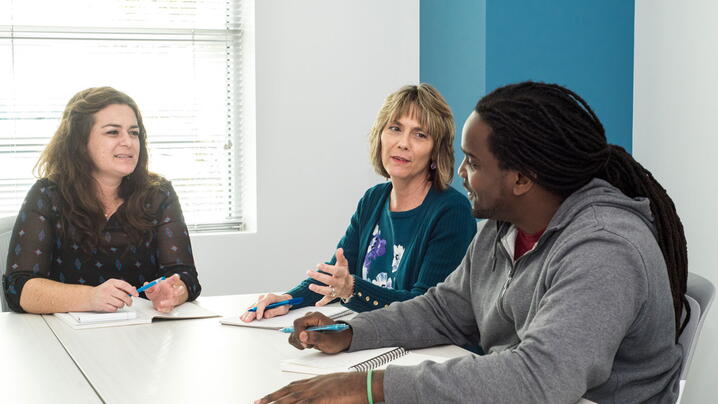
In the early days of the COVID-19 pandemic, as the virus barreled its way up the northeast coast, Massachusetts was one of the hardest hit states. Over the course of a few days in March, community spread became evident. Cases began rising exponentially, our medical facilities were becoming overburdened, PPE was nonexistent, and our public health infrastructure was overmatched. Fear was growing, and panicked residents were looking to their state and local leaders for answers.
Local officials here in Massachusetts are fully convinced that the strong state-local relationship that we had built over many years has been a true difference-maker, enabling local and state leaders to quickly mobilize, collaborate, and implement strategies to slow the spread, protect the most vulnerable, set priorities, act, learn, and iterate. In short order, our intergovernmental partnership transformed our state into a national leader in controlling the virus.
Pre-COVID-19
Before COVID-19, natural disasters and emergencies were isolated events of relatively short duration. Over the past 50 years, municipal, state, and federal agencies have built a culture of planning, training, and practicing to ensure effective communications and operational excellence in responding to these “typical” disasters.
The evolution of emergency preparedness closely tracks the movement to modernize local and state governments. It is no accident that as local governments became professionalized, our disaster response capacity became enhanced as well. Professional managers know that communication, collaboration, and cooperation are much easier to execute during a crisis if they are the norm beforehand, because these habits build trust and make it easier to navigate through conflict and stress.
The special challenge that the coronavirus brings is the sheer magnitude of the mobilization needed, touching all facets of government. The vast majority of the public officials and employees involved in the response have never received training on infectious disease control policies and procedures, let alone participated in table-top exercises, or practiced how to ensure seamless interagency communication in so many directions.
Fortunately, long before COVID-19, local and state officials in Massachusetts had built a culture of intergovernmental cooperation. For years, top municipal leaders have met monthly with administration through our Local Government Advisory Commission. Local officials have had direct access to our top legislative leaders (both former local officials). And even though they are from different parties, the governor, lieutenant governor, speaker, and senate president have met every week to discuss key issues.
Scaling Up to Respond
This intentional culture of communication and respect up, down, and across, made it much easier to scale up collaboration during the early days of the pandemic.
Because of our monthly meetings, it was a small jump to have MMA host weekly COVID-19 briefings by the administration for all 351 municipal CEOs. The lieutenant governor brings top agency heads to the Zoom meeting, provides the latest information, and answers questions. The MMA moderates and records the sessions, posts the recording on our website for every local official to access, and provides a summary with links to every new order, guidance, and resource.
The governor and lieutenant governor (also former local officials), included municipal leaders on their Reopening Advisory Committee, and have actively solicited input from local officials at every stage. During the reopening process, they have deferred to municipal officials who have wanted to move more slowly, accepting the judgment of local officials to make decisions that are best for their communities. All state guidance and orders are pushed out through MMA and multiple channels, not just passively posted on the state website.
The legislature unanimously enacted dozens of law changes in March, April, and May to facilitate continuity of operations locally, allowing for unprecedented flexibility in municipal budgeting, elections, administration, and governance.
Building Culture
It took a long time to build this culture of nonpartisanship, respect, and understanding between local and state officials. And while municipal leaders can’t control the actions and behaviors of state officials, we can control our own.
Building a positive local-state relationship is a lot like emergency preparedness. It takes planning, communication, and practice. Here some practical steps we can all take:
- Stay nonpartisan at all times, and never play favorites. Here in Massachusetts, it helps that all municipal elections are nonpartisan. Share credit and accountability equally. If you are a city or town manager, do your best to encourage the officials on your governing boards to understand that partisan winds are fickle and can shift at any time. Community over party is the best policy.
- Focus on the facts and substance, be consistent, and avoid drama and unnecessary surprises. Don’t personalize disagreements with state officials. Tomorrow is another day.
- Stand up for your municipality’s role in our intergovernmental system, and understand the state’s role, too. We both serve the same constituents. It is vitally important to come to a shared understanding of each other’s roles before any decisions are made. Respect is only achieved when it moves in both directions.
- Create routine channels of communication and use them to build relationships. Never communicate negative messages via social media. Meet in person. If you can’t meet, Zoom. If you can’t Zoom, call. If you can’t call, email. If you can’t email… then you are stuck in the 1980s.
At a time when partisanship and division have gripped our national politics, it is heartening to see clear evidence that productive intergovernmental relationships are invaluable. A key lesson from the COVID-19 response is that strong state-local partnerships are essential for good government and effective public leadership.
Geoff Beckwith has been the executive director & CEO of the Massachusetts Municipal Association since 1992. He is an MBA graduate of the Sloan School of Management at the Massachusetts Institute of Technology, and earlier this month was elected as a Fellow at the National Academy of Public Administration.
New, Reduced Membership Dues
A new, reduced dues rate is available for CAOs/ACAOs, along with additional discounts for those in smaller communities, has been implemented. Learn more and be sure to join or renew today!
